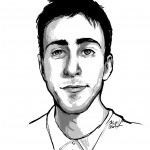In Saturday’s freshman address, President Peter Salovey revisited the Woodward Report, a document that has nobly articulated the defense of free speech in academia for the past four decades. Its most memorable line declares, “the right to think the unthinkable, discuss the unmentionable, and challenge the unchallengeable.”
 Behind these words, though, lies a more complicated history than many realize. That past carries a lesson as powerful for us today as the text itself.
Behind these words, though, lies a more complicated history than many realize. That past carries a lesson as powerful for us today as the text itself.
When President Kingman Brewster formed a committee to write a report on free expression in 1974, he had a long and checkered track record on the topic. Eleven years earlier, parts of the New Haven community threatened violence when the Yale Political Union extended an invitation to segregationist George Wallace. Fearing urban unrest, Brewster pressured the YPU to disinvite its controversial guest.
In one form or another, that pattern repeated itself over the next decade. Yale’s 17th president often sided against the open exchange of ideas, typically in an effort to prevent bloodshed. These tactics worked, protecting the University from the worst mayhem of the 1960s.
But by 1974, Brewster realized that he had sacrificed a crucial academic principle for the sake of an expedient, albeit successful, pragmatism. He turned to a joint faculty-student committee to reaffirm the values of free speech at Yale. For the committee’s chairmanship, he tapped C. Vann Woodward, a scholar of the American South and arguably the nation’s most distinguished living historian.
When the two men discussed the appointment, Woodward initially declined the position. Far from impartial, the historian was an outspoken advocate for free expression, a cause he first embraced as a young scholar of racism living below the Mason-Dixon line.
Brewster, though, had no misgivings about a biased chairman. In fact, it was Woodward’s public stance on free speech that made him an appealing choice, all but guaranteeing that the committee would endorse open discourse.
The president selected other committee members with similar care: One was the late Robert Dahl GRD ’40, an eminent political scientist who commanded respect on campus and offered a sure vote for free expression. Another, Lloyd Cutler ’36 LAW ’39, was a Yale alumnus and close confident of the president who would watch out for Brewster’s personal interests.
During the fall term of 1974, the 13-person committee met seven times in the master’s house of Silliman College. Their deliberations, which lasted for hours, spanned legal theory and philosophy. The members assigned tasks according to their respective skills. To Woodward lay the job of compiling a history of free speech incidents at Yale.
According to oral testimony from a surviving member of the committee, the chairman initially presented his colleagues with a brutally honest document that, intentionally or not, highlighted Kingman Brewster’s failures. Upon reading the draft, Lloyd Cutler confronted Woodward: “You can’t write this. If you write this, Kingman Brewster will have to resign.” Then, according to the same committee member, Cutler “bullied Woodward” into rewriting the history.
Though the committee’s minutes do not record this exchange, the history of free expression at Yale that Woodward did write — which today is the second section of the report — is not completely accurate. Important events, from a controversial sit-in in 1969 to students disrupting a screening of the movie Tarzan in 1970, do not appear in the text at all. Other incidents are written in a light favorable to Yale’s president. This evidence strongly suggests, though it does not conclusively prove, that Woodward massaged the past.
The historian faced an unappealing choice. If Woodward had written an accurate history, he would have placed Brewster in jeopardy at a moment when the president was poised to reassert the values of liberal tolerance in academia. But to falsify history — even if only by omission — violated the scholar’s ethics.
Woodward’s ultimate decision — to protect Brewster — allowed his report to become a timeless document, but one that manipulated the history of his time.
Here lies the lesson of a great man who knew when to compromise a principle close to his heart for the sake of a higher cause. In many ways, Woodward was a fitting parallel to Brewster, another giant, who had chosen to sacrifice free expression in order to calm the turmoil of the 1960s.
Rarely do our lives and scholarship force us to make these kinds of difficult choices. But when we must, we have Woodward’s example to guide us.
Nathaniel Zelinsky is a 2013 graduate of Davenport College. His senior essay examined the Woodward Committee and the 1972 Study Group on Yale College. Contact him at nz244@cam.ac.uk .







